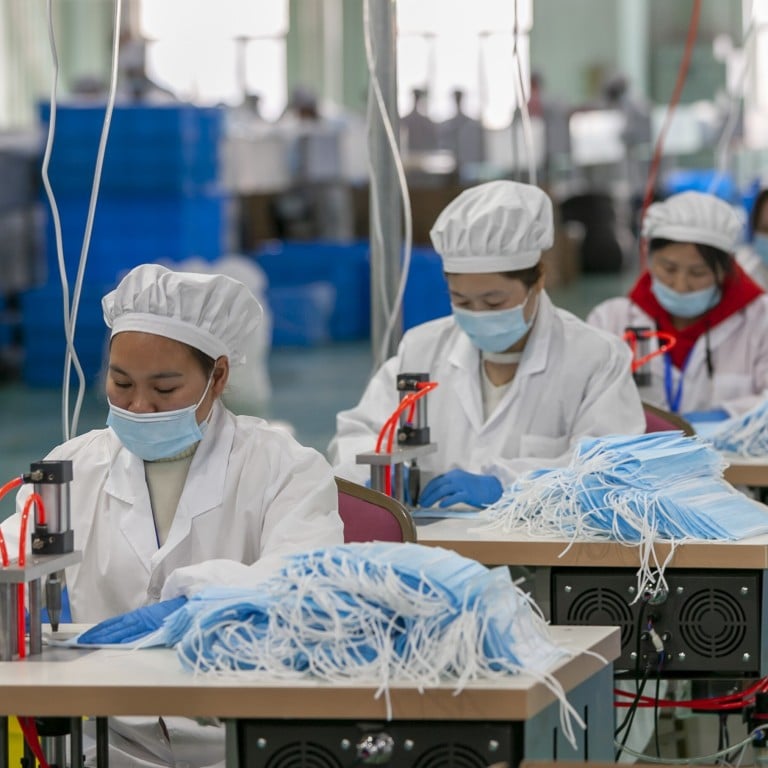
Coronavirus: China bans two medical equipment exporters for ‘tarnishing the country’s image’
- Two Chinese firms have been banned from selling medical equipment after they were found to have exported defective products, the commerce ministry says
- Both firms started trading in medical products after a sharp increase in demand due to the global fight against the coronavirus outbreak
Beijing has banned two companies from exporting medical equipment after they were found to be selling poor quality products and “seriously tarnishing China’s national image”.
Shenzhen-based Aibaoda Technology and Beijing-based Tus Data Asset, two little known players in the medical equipment industry, will no longer be able to export products relating to the control of Covid-19 after overseas buyers returned their goods, the Ministry of Commerce said in a statement on Monday.
The ministry did not offer details on the faulty equipment sold by the two companies, but neither had worked with medical products until recently.
Aibaoda, a 15-employee company backed by Taiwanese audiovisual firm Aipo International, previously sold earphones, microphones and loudspeakers, while Tus Data Asset developed blockchain technology and electronic equipment.
“We started to export masks not long ago … we were not exporting any medical supplies other than masks,” an Aibaoda spokesman, who only gave his surname Li, told the South China Morning Post. “We don’t manufacture masks, we just bought the masks from somewhere else and exported them.”
The company expanded its business in February to sell masks, disinfectants, protective suits, safety goggles, disposable gloves, thermometers and other medical equipment to cash in on soaring demand, although it did not make the products, according to the spokesman.
The company joined hundreds of other Chinese firms in virtually transforming their businesses overnight to supply or manufacture medical equipment as the virus spread around the globe in March.
Many companies were lured by the commercial opportunity, which was supported by the Chinese government through subsidies, lower taxes, interest-free loans and fast-tracked approvals to increase manufacturing capacity.
Before the outbreak, China made about half of the world’s supply of masks, at a rate of 20 million units a day, according to the state planning agency. That jumped to 116 million units at the end of February.
The second company subject to the ban, Tus Data Asset, was controlled by the state-owned Tus Shareholdings. Company registration records show Tus Data Asset changed its business model on March 23 to include the sale of medical equipment.
The company did not reply to requests for comment.
China, the world’s largest producer of face masks and protective gowns, has come under fire over the export of defective medical gear recently.
In late March, Dutch officials recalled 600,000 masks manufactured in China because they did not meet standards for adequate filter performance or proper fit.
Turkey has also said a number of sample test kits were faulty, while the Czech Republic said that up to 80 per cent an order of 300,000 rapid coronavirus test kits did not work properly.
In April, Australia seized 800,000 counterfeit masks that arrived from China by air, although most products had passed Australian regulations.
Sign up now and get a 10% discount (original price US$400) off the China AI Report 2020 by SCMP Research. Learn about the AI ambitions of Alibaba, Baidu & JD.com through our in-depth case studies, and explore new applications of AI across industries. The report also includes exclusive access to webinars to interact with C-level executives from leading China AI companies (via live Q&A sessions). Offer valid until 31 May 2020.


